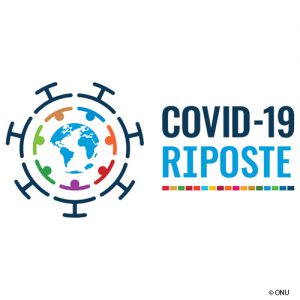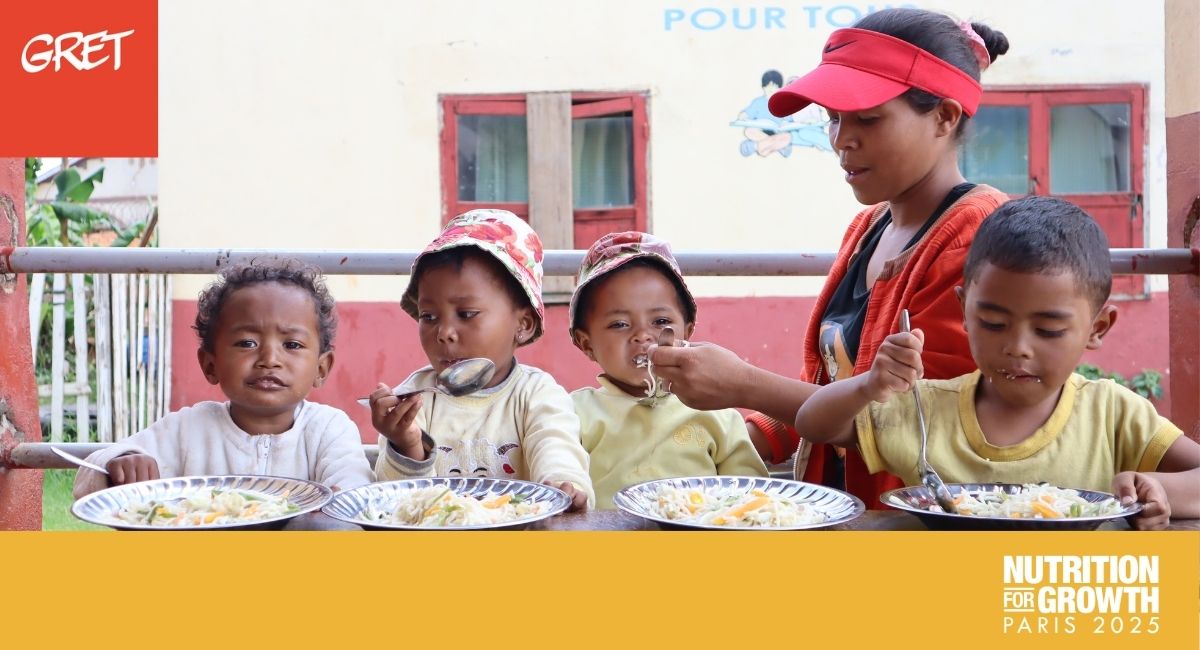While the Covid-19 epidemic is spreading in most countries throughout the world, GRET and its teams are adapting their activities to continue supporting the most fragile populations, in a context of great uncertainty.
The coronavirus (Covid-19) pandemic erupted brutally in our daily lives. This unprecedented situation, affecting rich and poor countries, and all human communities, could have a substantial impact on our ways of life and our societal models: there will be a pre and a post pandemic. The priority, naturally, is above all to contain the health crisis. For everyone to have rapid access to healthcare and for morbidity to be drastically reduced, for contagion to finally reach its limit and not lead to the most fragile populations suffering from the economic crisis that is looming.
The pandemic is confronting all solidarity stakeholders with urgent changes to be made to strengthen the resilience of our societies and respond to the global challenges affecting households, villages, neighbourhoods, regions and countries. We must all responsibly build a world and human societies together, founded upon a more equitable, more sustainable distribution of our resources and capacities, as inequality in access to healthcare, fragility of responses to the crisis, and the difficulty of sustainably rebuilding will be huge challenges. The pandemic is just a signal of the damage to biodiversity and nature, the excesses of globalization and of unlimited consumption, which must be met with local and global responses.
In this context, GRET is more determined than ever to take action. Although primarily it is necessary to strengthen our support to our partners and populations who most need it, by following in real time recommendations issued by the different national and local authorities to limit the spread of the virus to a minimum, the teams are continuing their mission of general interest as best possible, by adapting the way they work. In France and in all the countries where we work, measures (homeworking, barrier gestures, awareness-raising, contingency plan) have been taken to ensure continuity of our activities.
Redirecting our activities towards greater prevention and awareness-raising
Hunger, malnutrition, poverty, lack of access to basic essential services and decent living conditions are all factors likely to increase vulnerability of populations faced with health and epidemiological risks. Continuing our projects is therefore a necessity, both for our local partners and the three million people directly and indirectly impacted by GRET’s activities. To do this, several measures – adapted to each context – have already been implemented.
Field activities considered risky have been postponed or changed, while mobilisation of our partner networks and the implementation of digital tools now make it possible to quickly and comprehensively convey information on prevention and awareness-raising. Two requirements in terms of awareness-raising: on the one hand, that messages and actions undertaken respect government response plans and recommendations issued by the World Health Organisation; on the other hand, that the way in which these actions are conducted be as safe as possible for the teams and communities concerned. Our direct project partners are receiving enhanced training on health risks, mainly for activities related to waste collection and treatment.

In Haiti, as part of the EU-funded Urbayiti* programme, in which GRET is working on the implementation of a waste management system, hand-washing points have been installed – at the request of the municipality of Port-au-Prince – in places where large numbers of people gather, particularly markets. While awareness-raising activities were initially planned as part of the project, GRET decided to very quickly redirect part of these in order to support local authorities in the race against time.
In the Sahel, the Meriem project – which is developing marketing solutions to prevent malnutrition in Niger, Mali and Burkina Faso – is supporting its partner businesses in order to help them continue their activities in full safety, especially in areas highly impacted by confinement. Pilot initiatives selling bread in Burkina Faso and dairy products in Niger are currently being adapted, in terms of working hours and places of distribution. Hygiene measures have been strengthened, minimising contacts with the population and food (distribution with no physical contact, availability of hand sanitizers and gloves, packaging of food products, etc.). Lastly, systems for telephone orders and contactless deliveries are now in place to ensure the sustainability of our partners’ activities and food supply for populations.
In Niger, as part of the Pafan and Meriem projects, partner companies producing fortified infant flours are continuing to provide good quality foods for the population at affordable prices via sales outlets or, for the most vulnerable, via free delivery ensured by humanitarian institutions and organisations. Appropriate awareness-raising messages on nutrition – including prevention of Covid-19 – are being sent out in parallel, and hygiene kits are being distributed in healthcare centres and to the population.
In Senegal, the social mobilisation system of the Asap project aimed at improving sanitation in the region of Tambacounda adapted its prevention messages and conveyed information in local languages to communes to fight against the spread of Covid-19, communicating via local radio stations, WhatsApp groups and telephone meetings, in order to protect awareness-raising staff. Hygiene kits – containing soap, bleach and hand-washing systems – were also distributed to mayors in the 12 communes where the project is operating.
With regards the Commun* project, normally aimed at protecting forests in Casamance, partnerships with three community radio stations were set up to organise awareness-raising radio programmes with healthcare and local authority staff in attendance. “We are also considering support for healthcare services, equipping them with healthcare material and implementing hand-washing systems installed in public places such as the prefecture, the hospital, the town hall, the central mosque, forestry services, dispensaries, etc. This could be our symbolic contribution to this fight”, explains El Hadji Thierno Cissé, coordinator of the National council for rural consultation and cooperation (CNCR), GRET’s partner in this project.
Elsewhere in Africa, as well as in Asia, the multifaceted dynamics in our various fields of intervention see our teams and partners working to propose solutions to limit the impact of the crisis on populations. Implementation of systems for money transfers in cash or coupons is being examined in some situations.
Thinking about a more resilient future
Current and future upheavals caused by this health crisis cannot yet be quantified, but we can already be sure that the consequences will be massive, in economic and political terms at international level, and locally in populations’ daily lives. We must place our focus on minimising negative impacts on the most vulnerable populations and as of now we must be mobilised in the field and at the political level, to ensure an international, collective, equitable response for the benefit of global resilience. Together with its partners, GRET will contribute to inventing new resilient public policies that will have to be deployed. In the uncertain world of tomorrow, GRET will use its pragmatic, participative methods to continue striving for social innovations to make this world fairer and more resilient.
On all continents, solidarity organisations must work to prevent sectarian segregation in communities and to combat fear. They must ensure that national and international recovery and transformation plans leave no one behind. Highlighting vulnerability in our prevention and healthcare systems is also an opportunity to reiterate the necessity for international sustainable development, which has already been abundantly described and approved in principle by nations and stakeholders. Consideration of the urgency of climate change, the environment, health and social justice is necessary now more than ever. The commons-based approach, reassertion of the general interest, the necessity to strengthen democratic governance and participation are confirming their relevance. The notion of commons, which can enrich local resilience processes, values the capacities of populations to organise, to manage their resources and define fairer, more sustainable forms of governance that can also be part of State frameworks, or not.
To take action for the “world of tomorrow” and recover from this multifaceted world crisis, we will also need to draw on the 17 Sustainable development goals adopted by the United Nations in 2015, resources that can be further developed and highlighted to help us craft a common world.
Initiatives, practical advice and useful links
To enable everyone to understand, protect themselves and act at their own level, here is a non-exhaustive list of initiatives conveying messages on prevention and disseminating best practices. Don’t hesitate to let us know of any other actions that could be relayed on this page!
To enable everyone to understand, protect themselves and act at their own level, here is a non-exhaustive list of initiatives conveying messages on prevention and disseminating best practices. Don’t hesitate to let us know of any other actions that could be relayed on this page!
*The Urbayiti and Commun projects are implemented thanks to financial support from the European Union (EU). The content of this article is the sole responsibility of GRET and does not necessarily reflect the opinions of the EU.






